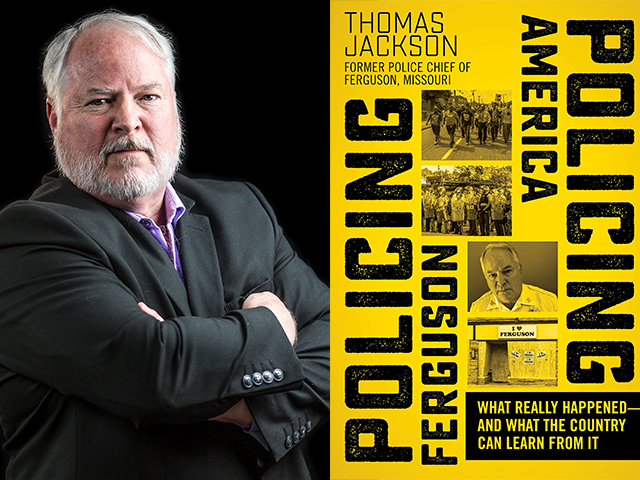After the shooting of an unarmed young man named Michael Brown in 2014, the city of Ferguson, Missouri, became the focal point for a growing movement, which became known as “Black Lives Matter,” that protested racialized violence, particularly when it’s a matter of police killing civilians. Now Thomas Jackson, the police chief of Ferguson who stepped down in 2015 after the Department of Justice issued a scathing report about racial discrimination in the Ferguson criminal justice system, has a book out in which he purports to tell his side of the story.
In “Policing Ferguson, Policing America: What Really Happened . . . and What the Country Can Learn from It,” Jackson defends his police department from charges of racism, accuses the media of blowing the situation out of proportion, and accuses former attorney general Eric Holder of being biased against the Ferguson police and therefore careless in his work investigating the department.
During my interview with him for Salon Talks, Jackson repeated these claims, saying, “There was a one-sided picture that went out and stayed out there, and it became a story that was not true.”
The majority of Ferguson residents are black, but the majority of leadership in the town and police department was white. Jackson believed, nonetheless, that there was no reason to think the white leadership was biased against black residents — even though he was swift to suggest that Holder’s own experiences as a black man distorted his ability to deal fairly with the Ferguson police department.
“We don’t even know if so many of the people that they spoke to were from Ferguson,” Jackson said of the DOJ report.
This extremely serious accusation, that Holder was sloppy when it came to dealing with investigations of local police departments, is one that has also been made by now-attorney general Jeff Sessions. However, as Joe Strupp at Media Matters reports, police reporters and legal experts reject this claim, saying there’s no evidence that the DOJ was anything but thorough and professional in its work enforcing civil rights laws during the Obama administration.
When I asked Jackson why he thinks there is so much tension around police shootings, he argued, “It really comes down to the racial divide in the country that we have right now.”
But when I pressed him on whether or not he was talking about white racism against black people, he dodged, suggesting that, “the way the United States has handled post-slavery, post-civil rights, handling of the extremely poor has all been well-intentioned and an abject failure.”
(In reality, while black Americans still lag behind white Americans on many economic indicators, the gap has been narrowing in the post-civil rights era.)
Jackson put much of the blame for racial disparities not on white racism, but on “a lack of at least one parent, usually the father” and said that society should “encourage people to live as families, and to not leave it up to law enforcement or to teachers to socialize kids.”
I objected to this, pointing out that plenty of white people, including myself, come from “broken” homes and yet we aren’t treated like we’re unsocialized, and Jackson conceded that “abject poverty” is a larger issue, but was vague on what he thought causes that poverty, outside of seeming to blame liberal social policy for it.
Overall the conversation only reinforced my agreement with the criticisms that Black Lives Matter activists make about police and the country in general. Black people continue to be blamed, personally, for the way this country fails them over and over again, while the structural racism that leads to inequality is ignored.


